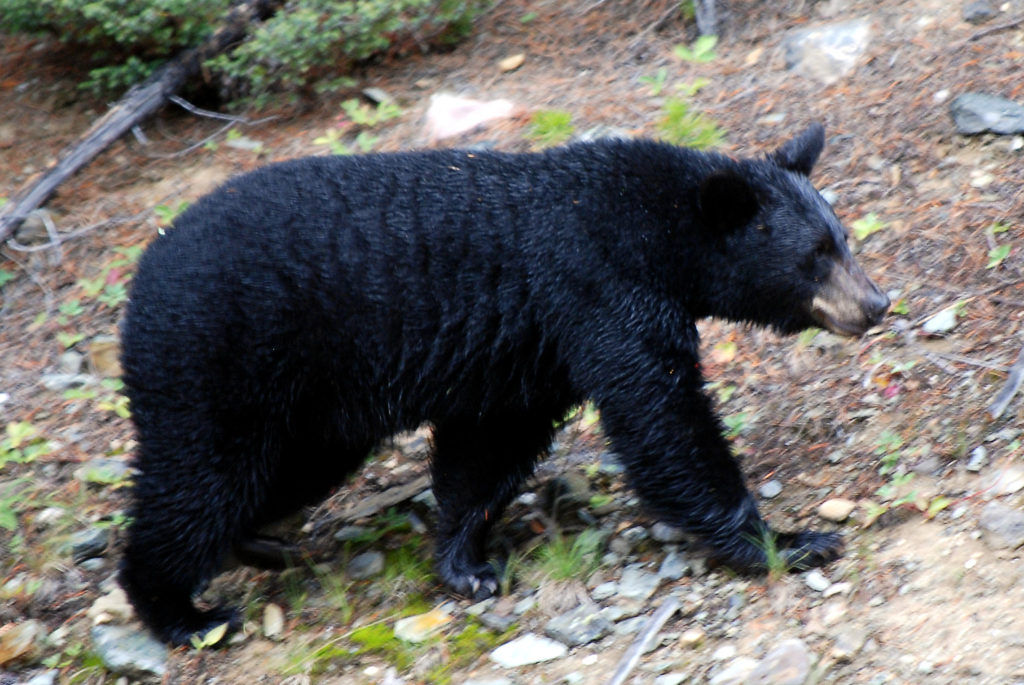
Black bear
Waking up. Leaves unfurling, flowers blooming, streams gushing. Spring in the mountains reminds me that nature is coming back to life. But for certain wildlife, it literally is a time of waking up. As I saw a picture the other day of a bear walking through someone’s backyard, it brought this point home. The bears are up and about from their long winter’s sleep.
When animals wake up from winter denning or hibernation, they have pretty much used up all their fat reserves they built up in the fall, and boy are they hungry. So a bear that is foraging in the spring is looking for anything and everything to eat. Here in Colorado, we only have black bears, but even those bears can get up to 300 pounds. Consider what a black bear normally eats — grasses, flowers, grubs, berries — and that’s a lot of food that a bear has to find to sustain their 200-300 pound frame. Black bears are considered omnivores, meaning they will eat both meat and plants, but typically they aren’t predators. They are happy to scavenge off the kill from other animals, like mountain lions, but they don’t like to hunt and kill other animals themselves.
The one thing they do like to do is take the easy path to food by getting into garbage of mountain residents. And they can be incredibly destructive when rewarded by this. In the last year in our neighborhood in Nederland, several people had bear break-ins from hungry bears looking for food the easy way. Our neighbors across the street had a bear rip a hole in their garage door looking for food. Another resident actually had a bear tear through a window screen and get into her kitchen marauding for food.
Living in bear habitat definitely affects your daily habits. Instead of putting garbage into a trash can and leaving it outside or at the curb, we keep all our garbage inside, and then haul it to the Nederland transfer station once a week. Bird feeders can be another attractant to bears, especially hummingbird feeders. We choose not to put any feeders or anything outside (including a compost bin) that could attract bears to our home. We also have to be careful to not leave food or wrappers in our car, lest the smell of food attract bears to break into the car as well. I don’t know if we are lucky or our “bear aware” ways have made a difference, but we’ve never had an incident at our home.
Seeing a bear, a bobcat, or a moose is what makes living in a small mountain town a special experience. It really makes the wilderness truly wild. But part of living in wildlife habitat is making sure I don’t do anything to make it less wild for them, and perhaps lead to an early demise. As they say, “a fed bear is a dead bear.” And boy are the bears hungry now after a long winter’s nap. Hopefully through our efforts, they will stick to the nature’s bounty instead.

